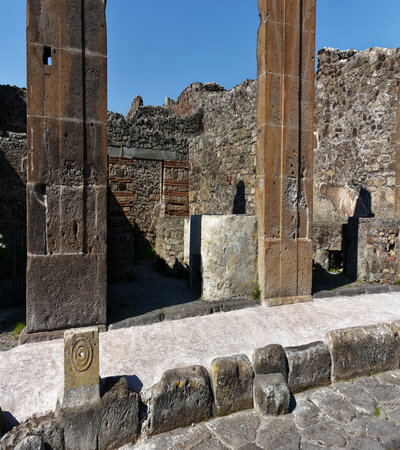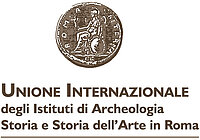DELPO. Urban production spaces and the history of techniques in Delos and Pompeii
- Section: Antiquity
- Director: Enora Le Quéré, lecturer, University of Rouen; Nicolas Monteix, lecturer, University of Rouen, Institut Universitaire de France
- Réseau des EFE : Programme in collaboration with the École française d’Athènes
Presentation
Over the past thirty years, research on production in the Roman world has grown substantially, part of the renewal of historiographical questions relating to the ancient economy. However, despite an abundance of studies, the links between archaeological research on forms of production and economic history seem to favour studies of trade and the involvement of elites in the economy.
This movement can be reversed by favouring a micro-economic approach, by comparing Pompéi and Délos, two cities located in two regions distant from the Empire and benefiting from a remarkable state of conservation at particular moments in the first centuries of AD. If Pompeii has benefited from a recent renewal on production issues thanks to the work carried out for over ten years by the Centre Jean-Bérard de Naples, knowledge remains, for the imperial period, less reliable at Delos.
This project aims to question the functioning of the ancient urban economy, seen through the prism of production activities. The idea is to compare the productive fabric of two “medium” Mediterranean cities of the Roman Empire, through the study of technical systems and the identification of the production activities taking place on each of the sites. Such a comparative or follow-up trial over a long period of time has, for the moment, never been attempted either at Délos or at Pompeii.
Beyond the publication of new scientific data obtained through excavation and cleaning campaigns at the two sites, this project will develop a training programme on its methods for young researchers – through seminars on archaeological experimentation, the economic history of techniques and the archaeology of urban production spaces. After four years of research, a travelling exhibition would also present these two major sites to the general public in a new way.
Schedule of operations
2017
-
May 20 to June 3: campaign in Delos, cleaning of the Palestre de Granit oven (GD 66) and production facilities of the House of Kerdon (GD 83).
2018
- June 3 to 22, 2018: campaign in Delos, cleaning of workshops to the east of the Establishment of Poseidoniastes of Berytos (GD 57), bakeries to the north of the Lake, and fulleries of Rue 1 of the Theatre (room c of house II B) and Rue Supérieure of the Theatre (shop 1).
- July 2 to 28, 2018: campaign in Pompeii, excavation of fulleries VI 16, 3-4 and VI 16, 6.
2019
- April 14 to 27, 2019: post-excavation campaign in Pompeii, analysis of ceramic, archaeozoological and ichthyological material from the pit unearthed in VI 16, 6.
- June 10 to 21, 2019: campaign in Delos, cleaning of the bakery on Rue du Theatre, east of the Agora of the Competaliastes, the fullery of shop 4 on Rue du Theatre, the workshop of production of purple (GD 80.1) and production facilities in shops 89 and 103, on the southern edge of the Agora of the Italians ( GD 52).
- July 1 to 31, 2019: campaign in Pompeii, excavation of the fullery VI 16, 3-4 and the VI 16, 5 workshop.














